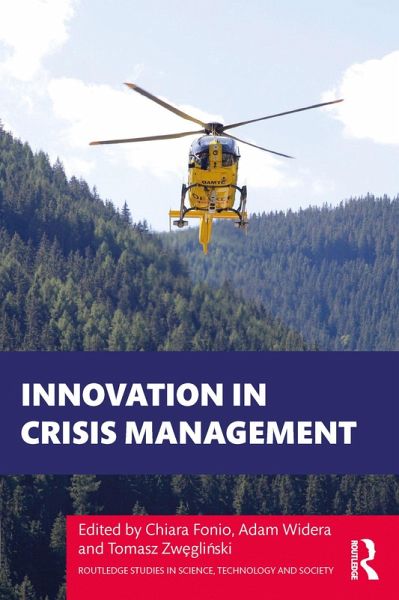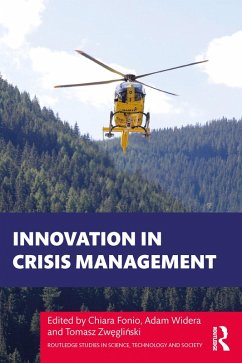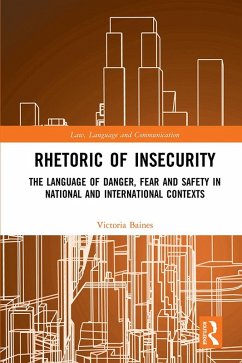
Innovation in Crisis Management (eBook, ePUB)
Versandkostenfrei!
Sofort per Download lieferbar
36,95 €
inkl. MwSt.
Weitere Ausgaben:

PAYBACK Punkte
18 °P sammeln!
This book deals with how to measure innovation in crisis management, drawing on data, case studies, and lessons learnt from different European countries.The aim of this book is to tackle innovation in crisis management through lessons learnt and experiences gained from the implementation of mixed methods through a practitioner-driven approach in a large-scale demonstration project (DRIVER+). It explores innovation from the perspective of the end-users by focusing on the needs and problems they are trying to address through a tool (be it an app, a drone, or a training program) and takes a deep ...
This book deals with how to measure innovation in crisis management, drawing on data, case studies, and lessons learnt from different European countries.
The aim of this book is to tackle innovation in crisis management through lessons learnt and experiences gained from the implementation of mixed methods through a practitioner-driven approach in a large-scale demonstration project (DRIVER+). It explores innovation from the perspective of the end-users by focusing on the needs and problems they are trying to address through a tool (be it an app, a drone, or a training program) and takes a deep dive into what is needed to understand if and to what extent the tool they have in mind can really bring innovation.
This book is a toolkit for readers interested in understanding what needs to be in place to measure innovation: it provides the know-how through examples and best practices. The book will be a valuable source of knowledge for scientists, practitioners, researchers, and postgraduate students studying safety, crisis management, and innovation.
The aim of this book is to tackle innovation in crisis management through lessons learnt and experiences gained from the implementation of mixed methods through a practitioner-driven approach in a large-scale demonstration project (DRIVER+). It explores innovation from the perspective of the end-users by focusing on the needs and problems they are trying to address through a tool (be it an app, a drone, or a training program) and takes a deep dive into what is needed to understand if and to what extent the tool they have in mind can really bring innovation.
This book is a toolkit for readers interested in understanding what needs to be in place to measure innovation: it provides the know-how through examples and best practices. The book will be a valuable source of knowledge for scientists, practitioners, researchers, and postgraduate students studying safety, crisis management, and innovation.
Dieser Download kann aus rechtlichen Gründen nur mit Rechnungsadresse in A, B, BG, CY, CZ, D, DK, EW, E, FIN, F, GR, HR, H, IRL, I, LT, L, LR, M, NL, PL, P, R, S, SLO, SK ausgeliefert werden.













